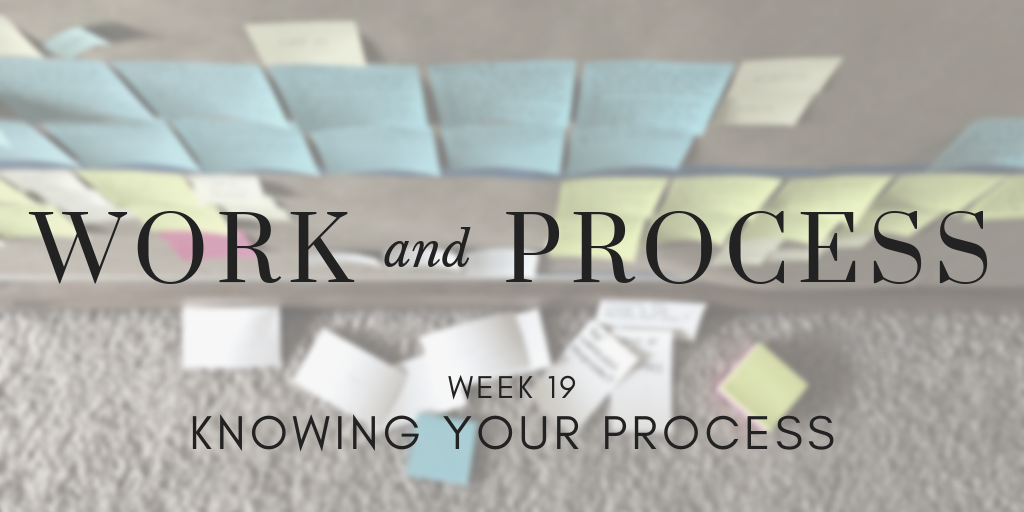|
If you read last week’s post on creative hobbies, you know I’ve started gardening more as a creative outlet. You also know I used to be an accidental plant-murderer. There are a number of ways to kill plants (not enough water, not enough light, too much light, too much food, not enough food, pests, disease, pruning, etc.), but my primary offense has always been overwatering. I’d see my plants struggling and think, Oh no! They need more water! when in fact, almost always, the plants were actually telling me, Less water, please! before drowning in my frantic and ignorant zeal.
The thing is, I had such limited knowledge and experience that I had only one way to address my plants’ needs: more water. But the more plants I’ve kept alive (and also killed, to be honest), the more I’ve learned to understand what they like: more water, less water, more light, less light, some fertilizer (but not too much), repotting, thinning, pinching, different soil… Now, when I see them struggling, I test the top inch of soil for moisture or feel the heaviness of the pot before watering. When encouraging my herbs to grow a certain way, I cut them at the right spot. I now have a lot of ways to approach gardening, a lot of tools in my toolkit, so to speak, and the experience and understanding to help me use those tools effectively. Which brings me around to my point for this week, because learning how to garden has gotten me thinking about the relationships between experience, instinct, and skill. It wasn’t too long ago, with regards to writing, I used to say that my main method of problem solving was “throw more words at it.” Stuck on a plot point? Throw more words at it. Can’t figure out this character’s motivation? Throw more words at it. Don’t know where to end a scene? Throw more words at it. As with my plants, I had a limited understanding of the problems my stories were having and a limited number of ways to address them, which often resulted in long (and/or many) drafts with lots of unusable words and ultimately a lot of stories that went nowhere or simply weren’t very good. But as I’ve written more stories, done this for more years, I’ve gained more experience with and understanding of my own work and process, which has ultimately translated into what I think we’d call instinct. Now, I can be working on a project, run into a problem, and understand within a page or two what’s wrong. Maybe I’m starting the scene too early. Maybe I don’t understand the main character’s motivations well enough. Maybe I don’t have a handle on the narrative voice. Maybe there needs to be more action/more funny/more angst. Maybe I need to slow down and stop pressuring myself so much. These instincts mean that I don’t often have to write huge chunks of manuscript before I realize they’re not working, saving me in both time and frustration, and my years of classes and craft books and writing exercises mean that I can usually find a good tool (a map, a brainstorm, a list of 10 things, etc.) to address the particular problem I’m having at any given moment. What’s cool is that experience and instinct work not just for the day-to-day practice of writing but for understanding my creative process as well. In the past year or so, I’ve noticed that it’s getting easier to listen to what my process is telling me. Now is the time to absorb rather than produce. Now is the time to plan. Now is the time to listen to music and take walks and jot down scattered notes that don’t connect right now but are in fact formative building blocks for the story I’ll later create. Now is the time to write the first words. Now is the time to read and revise. This understanding means that I don’t dive into a project before it’s ready to be written, or I let a book percolate for long enough that by the time I start on it, it’s dying to be written, or I collect enough research material that I’m not stymied by my own lack of world-building a quarter of the way into the novel. And these instincts, I think, will only get better the more experience I get. I found out the other day that if you cut a sprig of mint at a certain point and leave it in water (because perhaps you’re not ready to use it), it will send out roots, and you’ll be able to plant it again! It’s so exciting, because I feel like there are so many more things to learn and experience, both in gardening and in writing, and I’m so looking forward to discovering them. Next week: SIGNIFICANT CONCRETE DETAIL. I’m a descriptive writer by nature--I think because I as a writer have to understand exactly what a scene looks or smells or sounds like if I’m going to write about it. Otherwise I feel like I’m writing into nothing, trying to fill a void with a story rather than figure out the story that’s already going on in a particular environment. One of the first things I ever learned about craft, and indeed had practically drilled into my head while I was at UC Santa Cruz, was the importance of significant, concrete detail. Let’s rehash my college glory days next Sunday at tracichee.com and/or post your own responses with the hashtag #workandprocess. Oh frabjous day! <3 Work and Process is a year-long journey of exploring and reflecting on the artistic process, craft, and working in a creative field. Each Sunday, I’ll post some thoughts, wonderings, explanations, and explorations on writing and creativity, and by the end of it, I hope to have 52 musings, examinations, meanderings, discoveries, bits of joy or inquisitiveness or knowledge to share. In each post, I’ll also include a topic for the following week, so if you happen to be inspired to question/wonder at/consider your own work and process, you’re welcome to join me. We’ll be using the #workandprocess hashtag across all social media platforms, and I hope we find each other to learn and connect and transform on our creative wanderings. Comments are closed.
|
ARCHIVES
February 2024
CATEGORIES |


 RSS Feed
RSS Feed